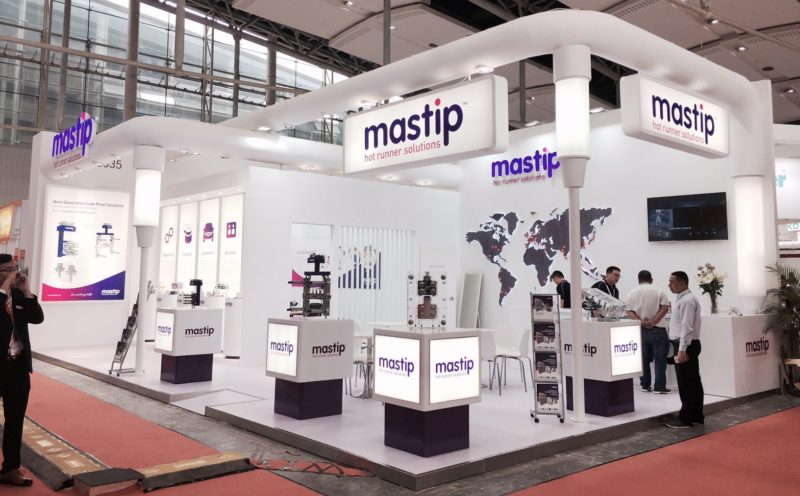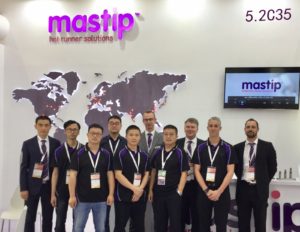Shakeup at Mastip
Mastip has been a stalwart of NZ manufacturing for over 25 years. Regarded as a pioneer of the global plastics hot runner industry, its products are now in 40 countries.
But importantly, the company is receiving a shakeup from new CEO Marc Michel, calling on him to grow the company, double its earnings accelerate new products and innovation and streamline its IP and manufacturing processes.
We grabbed him in between his global customer visits and asked him to share his plans.
NZM: Where is Mastip now, and what’s your roadmap?
MM: Mastip Technology has been a NZ-based manufacturing exporter since day one. We pioneered hot runner solutions and established a strong global reputation.
However, the company never scaled as it should and we’re now in a boom market for hot runners, worth over $2.7billion USD annually with a CAGR of about 6.5% pa.
We focus on a relatively narrow niche of specialist hot runner solutions to the plastics industry; and are the only supplier based in the Southern Hemisphere.
Our main point of difference is the deep domain knowledge of engineering grade polymer materials and production techniques, underpinned by global customer focus and service capability.
We’re now in Y2 of a three-year plan building a platform for global growth covering every aspect of the business from culture to channel strategy, manufacturing, product and marketing.
Suffice to say nothing remains the same when you’re looking at a shakeup of this magnitude.
During 2017 we launched our new tagline “We make things better” reflecting we are a critical partner to hundreds of globally-known brands across segments as diverse as automotive, medical, packaging, electronics, whitegoods and electrical.
NZM: So how did a professional yachtsman turn out to be CEO in a manufacturing company?
 MM: The board knew my background in high growth technology-based export companies and gave me a mandate to restructure for sustainable international growth.
MM: The board knew my background in high growth technology-based export companies and gave me a mandate to restructure for sustainable international growth.
I have a history of assembling, motivating and leading high-performance teams to deliver high growth in technology-based companies.
My yachting career brought me to the notice of Sir Peter Maire and Navman, and I became founder of Navman Australia, then part of the global management team which saw the successful sale of Navman to Brunswick Corporation.
Following this I held senior roles with BCS group up to its sale to Japan’s Daifuku Corporation.
My competitive sporting career contributes strongly to assembling and mentoring the high-performance teams critical to high growth companies, combining the right long-term strategy and innovation.
NZM: A big task – what’s the strategy?
MM: We are expanding our global footprint with initiatives in China, Europe and the USA. In China we have a new 3,000 Sqm manufacturing and technical support facility just outside of Shanghai –signed just last month!
This strategy is then supported by innovation -led product development, releasing a portfolio of new generation products starting Q4/17 and taking us through 2018/19
NZM: What products do you have in mind?
MM: Mastip’s expertise has always been with the moulding of more complex engineering polymers. Globally we see a shift from simpler commodity polymers to more complex engineering grades, driven by trends such as light weighting in automotive.
This really brings a much larger market into Mastip’s sweet spot so our technology and product roadmap is very focused on delivering for superior technical results with difficult to mould engineering grade polymers.
As an example, the SVG System -our latest innovation- delivers advanced thermal technology in the highly anticipated compact annular design. This design minimises mould height requirements resulting in improved machine optimisation, and exceptional thermal performance through advanced heating technology, incorporating new FlowLoc™ Technology
NZM: The advantages of being based in NZ?
MM: It’s a double-edged sword. On the one hand you can say Mastip has developed in isolation which has driven unique solutions. That’s an advantage as we have never followed the pack or conventional thinking.
Equally it means NZ manufacturers are a long way from key global markets. It’s harder to collaborate closely with key customers, although technology is beginning to really mitigate that.
Recent developments such as Newell Group’s purchase of our key NZ customer, Sistema, opens more global opportunities, as has our strategy of a global structure with China, a new European subsidiary in Portugal and growing our US team.
NZM: The old question – people. How hard is it to get the right staff?
MM: We swim in a limited talent pool. It’s one of the big barriers to manufacturing growth. At Mastip, we consciously build our talent pool.
We hire on attitude and fit with our culture, and if you have those two we can train from there. However, we have also had to target offshore to get the right blend of experience and different perspectives,
It’s a constant challenge. We need highly skilled CNC operators, which cannot be found locally. We also utilise very advanced design software with Unigraphics as well as Virtual Molding simulation software from Sigma, so we are always looking for skilled manufacturing, design and applications engineers. Call me!
NZM: Where are you manufacturing your products?
MM: Predominantly here in Avondale, Auckland although we outsource locally and internationally. Our new Chinese manufacturing operation is about co-locating manufacturing within our key markets given our heavy, bulky products are costly to ship, and our sales objective of $50m by 2020 which ultimately comes down to capacity and where to locate it.
Fundamentally we’d struggle to find the human resource in NZ to achieve a larger capacity and then when you look at the economics of freight and time to market it is a logical and long overdue step.
The future for our NZ operation is as the global centre of excellence and at the bleeding edge of all the business, which we then propagate out to the global organisation, becoming a better skilled organisation.
NZM: Is R & D a key component to success?
MM: Absolutely fundamental and a keystone of our global strategy. We work closely with Callaghan and have also formed collaborative partnerships with external research partners such as the School of Materials Science at Auckland University, Uniservices (and others).



